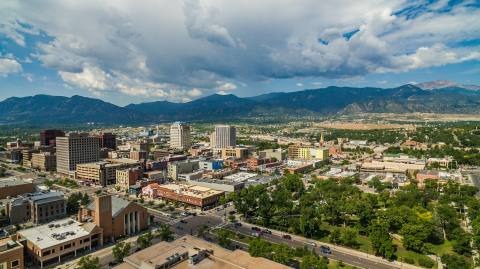Colorado is celebrated for its picturesque landscapes, thriving economy, and dynamic urban hubs, making it a hotspot for outdoor enthusiasts and a promising arena for commercial real estate investors. This article delves into the pivotal factors shaping Colorado’s commercial property market, exploring its economic resilience, demographic shifts, and evolving industry trends.
What Makes Colorado’s Economy Resilient?
Colorado’s economy stands out for its remarkable adaptability, showcasing resilience even during challenging economic downturns. Its diverse industries—including technology, healthcare, energy, and tourism—have created a stable foundation for growth, attracting investors looking for consistent returns.
The state’s thriving tech sector, particularly in Denver and Boulder, continues to drive demand for innovative commercial spaces. Additionally, Colorado’s energy sector, with a focus on renewables, further bolsters economic stability. This multifaceted economy not only supports the real estate sector but also fosters an environment conducive to long-term investments.
How Is Population Growth Fueling Urban Development?
Urban centers such as Denver, Colorado Springs, and Boulder are experiencing significant population growth due to Colorado’s high quality of life, abundant job opportunities, and natural beauty. This influx has led to an increased demand for diverse commercial spaces, including office buildings, retail outlets, and multifamily developments.
The rising population has also spurred urban redevelopment projects, particularly in Denver, where mixed-use developments are gaining popularity. These projects combine residential, commercial, and recreational spaces, offering convenience and a sense of community to residents and businesses alike.
How Are Office Spaces Adapting to New Work Models?
The COVID-19 pandemic reshaped the way businesses utilize office spaces, and Colorado’s commercial real estate sector has been quick to adapt. Hybrid work models and the growing preference for flexible office solutions have driven demand for adaptable and innovative office spaces.
Suburban office markets are emerging as attractive alternatives to traditional downtown spaces, aligning with employees’ preferences for shorter commutes and suburban living. Colorado architects are designing modern office spaces that cater to these evolving needs, ensuring functionality and aesthetic appeal.
What Is Driving the Rise of Industrial Properties?
Colorado’s industrial real estate market is thriving, fueled by the e-commerce boom and the need for efficient logistics infrastructure. Distribution centers, last-mile delivery facilities, and specialized industrial properties are in high demand as businesses strive to meet consumer expectations for fast deliveries.
The cannabis industry has also significantly impacted the industrial property market. With marijuana cultivation and processing requiring specialized facilities, investors are capitalizing on this niche market. Colorado’s strategic location and business-friendly climate further enhance the appeal of its industrial real estate sector.
How Is Retail Real Estate Evolving?
The retail sector in Colorado has undergone a transformation, driven by changes in consumer behavior and the rise of e-commerce. Physical retailers are adopting omnichannel strategies, blending online and in-store experiences to cater to diverse consumer preferences.
Mixed-use developments are becoming increasingly popular, integrating retail spaces with residential, dining, and entertainment options. These developments align with the growing demand for convenience and community-centric environments, positioning Colorado’s retail real estate market for continued growth.
Why Is Sustainability Central to Colorado’s Real Estate Development?
Sustainability has become a cornerstone of Colorado’s commercial real estate development. Developers are prioritizing green building practices and energy-efficient technologies to meet growing environmental and regulatory demands.
LEED-certified buildings, solar panels, and water conservation measures are becoming standard features in new projects. These initiatives not only align with Colorado’s commitment to environmental stewardship but also appeal to eco-conscious investors and tenants.
Government incentives and regulations further encourage sustainable practices, making sustainability a key driver of innovation in the state’s commercial real estate sector.
What Opportunities Exist for Investors?
The confluence of economic strength, population growth, and industry evolution creates a wealth of opportunities for investors in Colorado’s commercial real estate market. Whether in industrial properties, mixed-use developments, or suburban office spaces, the potential for high returns is evident.
Staying attuned to market trends and embracing innovative and sustainable approaches will be crucial for investors looking to capitalize on Colorado’s growth. The state’s strategic position as a hub for business and lifestyle continues to attract attention, making it a prime destination for commercial real estate investments.
Conclusion
Colorado’s commercial real estate landscape is defined by its resilience, diversity, and forward-thinking approach. Economic growth, demographic shifts, and industry trends are driving demand across various property sectors, creating a dynamic and lucrative market for stakeholders.
As Colorado continues to evolve, investors and developers have the opportunity to shape its future. By focusing on innovation, sustainability, and adaptability, the state is poised to remain a leader in the national commercial real estate arena for years to come.



